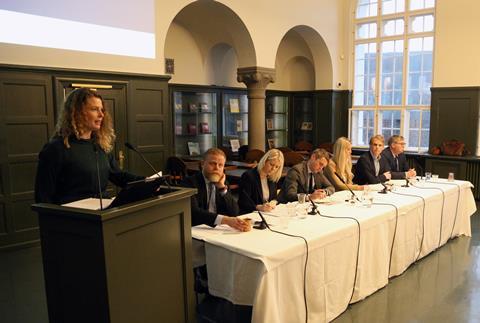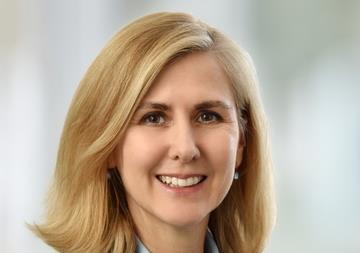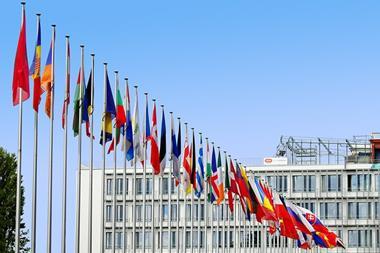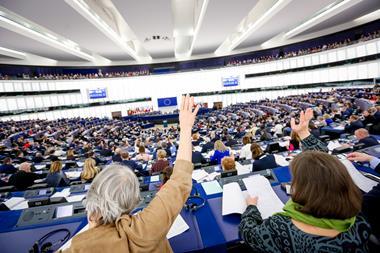Icelandic pension funds have reacted to a proposal by their supervisory authority to align their governing rules to those of banks and insurers by saying they should not be lumped together with other financial firms, given their uniqueness.
The Central Bank of Iceland, responsible for pension fund supervision, published a report last month outlining changes it believed should be made to the legislative and regulatory framework around the country’s pension funds.
In the 22 October report, it highlighted that pension fund assets were now very large compared to the Icelandic economy, and said how the institutions invested had implications for financial stability.
The bank proposed changes to the law around pension funds, notably that their rules should be harmonised in some respects with those of banks and insurance companies, and that the “principle of common sense” should govern how pension funds could invest instead of quantitative restrictions – along with a suggestion that the funds should heed the effects of their investment choices on the country’s financial system.
Following the publication of the report, representatives of the pension fund sector took part in a meeting convened by the central bank to discuss the ideas.
The Icelandic Pension Funds Association (Landssamtök lífeyrissjóða, LL) published an account of the discussion on its website, summarising pension fund reaction reactions to the report by saying it was seen as “positive and commendable” to receive a report from the Central Bank of Iceland on the activities of pension funds, especially given the bank had said its goal was to spark a discussion.
According to the central bank, pension fund assets have multiplied some tenfold since the turn of the last century to stand at ISK7.71trn (€52bn) at the end of 2023 or 184% of GDP.
It said pension funds were now larger than banks and insurance companies combined, with enough assets to buy up the ISK6trn market value of all the country’s registered bonds and shares.
There were now 21 pension funds, down from 96 in 1980, it said, adding that the 15 largest had 97% of total assets, with the largest three managing around half of the system’s total assets.
“Increased consolidation is undeniably accompanied by certain economies of scale, but at the same time there are certain issues to be resolved, among other things with regard to how pension fund management is handled and to what extent they should act as shareholders in companies,” it said.
Pension funds were expected to grow in the years ahead, which would further increase their investment needs, the bank said.
“However, availability of domestic investment options is limited, therefore it is important that pension funds have rich opportunities to invest in diverse assets, both inside and outside the country,” it added.
“Foreign investment may involve challenges for financial stability, and it is desirable that the funds take into account the possible effects on the balance of payments of foreign investments, so they neither create nor promote fluctuations in the exchange rate of the króna,” the bank said in its report.

Pension fund investment rules should be reviewed with the aim that the principle of common sense would prevail, the authority said, adding that in parallel with this, the requirements for the funds’ control systems should be strengthened.
“Quantitative restrictions do not take into account that the risk profile of pension funds is different,” the bank said.
Along with its proposal that pension fund legislation be harmonised “as appropriate” with legislation on other financial entities, the Central Bank of Iceland said pension funds should also be subject to similar regulations as banks in the real estate loan market.
It also said pension funds rules around derivatives trading and securities lending should be examined.
LL told pension fund representatives at the meeting – who included Ólafur Sigurðsson, chief executive officer of Birta Pension Fund and Rebekka Ólafsdóttir, chief risk officer of Gildi Pension Fund – there was certainly a need to change various things in the law on pension funds, and that this had been long overdue.
“On the other hand, many things could be mentioned that made it a concern to include pension funds under the same legal and regulatory framework as banks and insurance companies,” the lobby group continued.
Pension funds’ uniqueness lay inter alia in the fact that labour market members had laid the system’s foundation and that they had a strong voice in it, and the funds also had a certain social role – and in that respect would be incomparable to financial companies and insurance companies, LL said, reporting what pension fund representatives had highlighted.
Finnbjörn Hermannsson, president of the Icelandic Confederation of Labour (ASI), objected at the meeting to “the central bank’s desire to have a greater influence on the pension fund system and to try to pave the way for the banks to enter mutual loans, the only competition in the banking market,” according to LL’s account.
Hermannsson also said pension fund members would not be financial stability or foreign exchange reserves, but the owners of their pension rights in the funds, according to LL.
Read the digital edition of IPE’s latest magazine























